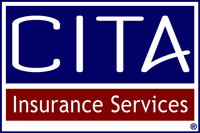-
Always Compare Coverage When Changing Carriers
Always Compare Coverage When Changing Carriers
05.02.2018There are as many reasons for switching carriers as there are insurance carriers, and can range from pricing to non-renewal. Whatever the reason, an insurance agent is obligated to provide his client with the best available coverage at the best available price.
In any scenario involving a change of carriers, the overriding concern for the agent should be whether the new policy provides coverage that is at least equal to that provided by the prior carrier. In making that assessment, the old and new policies must be compared line by line – the so called “mirror test”. If the coverage differs, be sure to notify your client in writing, explaining the differences and possible consequences to the best of your ability. Maintain copies of that communication in your file, as a client’s recolection of what was disclosed and discussed may tend to diminish in direct proportion to the amount of financial loss he suffers as a result of a coverage issue. If the client is willing to accept the differences in coverage, make sure that you document his informed consent as well.
Although many carriers engaged in a particular line of business may use standard policy forms, the coverage provided may be vastly different. Special endorsements and conditions may significantly alter the coverage provided by the policies. Never assume that similar policy forms provide the same coverage.
Always be wary of significantly lower premiums – in many cases “you get what you pay for” and a cheaper policy may provide less coverage, often much less. Coverage restrictions, onerous exclusionary language, higher co-insurance provisions, and other negative features may well be the driving forces behind the reduced premium.
If you are tasked with obtaining coverage for a new client, make sure that you obtain a complete copy of any existing policy for comparison purposes – merely reviewing a declarations page is insufficient and can lead to an E&O claim if discrepancies are discovered later.
If a new policy does not provide as much coverage, your potential E&O exposure increases exponentially. Although the process of policy comparison can be time consuming and at times downright boring, it is always preferable to discover any potential coverage discrepancies before a claim under a new policy arises.
All information provided in this blog is for informational purposes only. The sources used are presumed accurate. CITA Insurance Services, Brown & Brown Program Insurance Services, Inc. and Brown & Brown, Inc. will not be liable for any errors, omissions, losses, injuries or damages arising from its display or use and will not assume responsibility for any misguided information. No guarantees are implied.
